El Conde
“Naturally, our dear Count has tasted human blood from every corner of the world.”
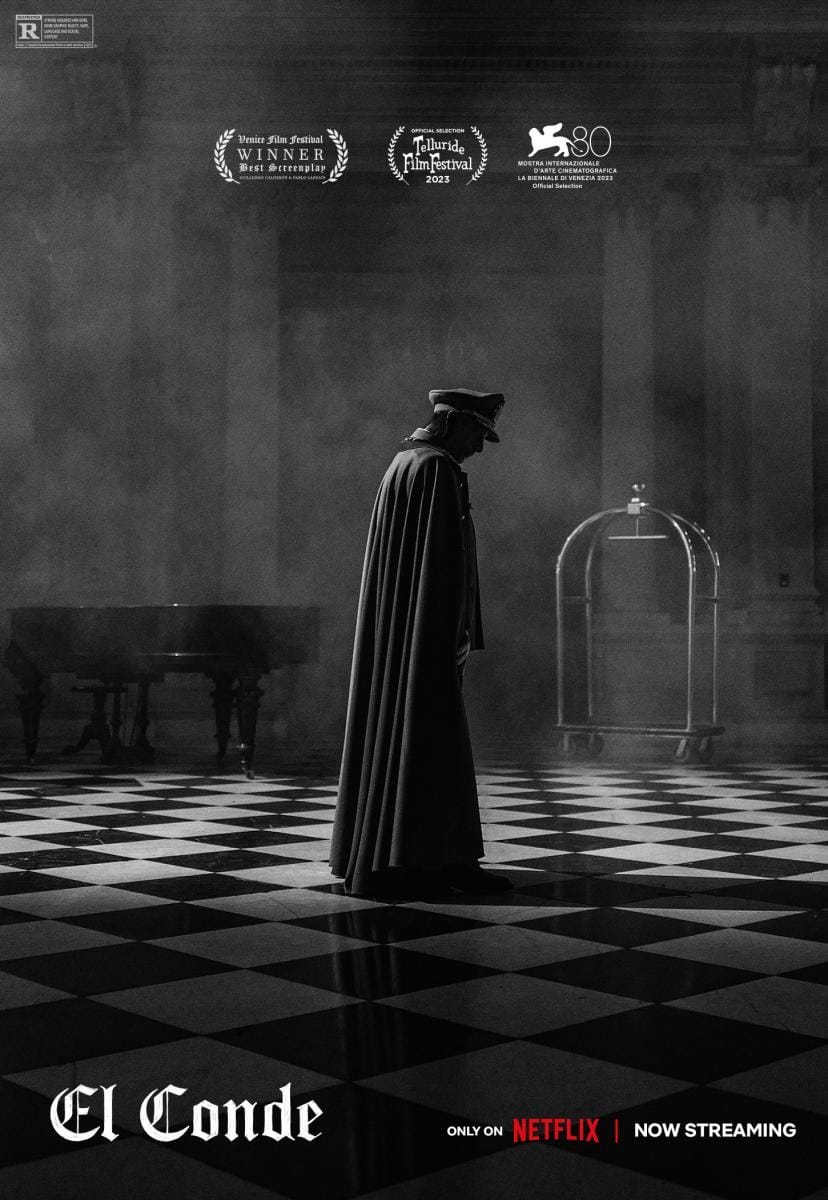
Chilean dictator Augusto Pinochet is in actuality a two-hundred-and-fifty-year-old vampire, and now, having grown tired of his long life, he finally wants to die…
In a satire that echoes our own current political crisis, all while remaining a little opaque for those of us here in America who are not as immediately familiar with the life and times and many, many crimes of that most abominable monster, the ruthless dictator Augusto Pinochet, this Chilean film portrays said dictator as a centuries-old vampire who has grown weary of his eternal life. Once his crimes had brought him too much attention, making it so he no longer had a say in how history perceived him, and to avoid his many well-deserved punishments, he had faked his death. But now, after only a few years, he’s realized that spending the rest of eternity hiding in the shadows will be no life for a man of such as he, and so, depressed and weary…
He wants to die.
Once a young soldier for Louis the VXI in France, working to put down the rebellion, it’s a little unclear how Pinochet became a vampire. One day, he just was one. It’s said that this was simply his true nature, the hunger for blood. Seemingly not bothered by sunlight, but able to fly, he has since moved across the globe, following the smoke and fire of conflict, always siding with the elite wherever he went, always brutalizing and destabilize any left-leaning movements he found throughout the world, nourishing his bloated body and rotten soul not only on blood, but also on his need for fascism. Over these long, long years, he found that the only thing he truly wanted, the only thing he truly lacked, was wealth and power.
Finally, in the early 70s, Augusto José Ramón Pinochet Ugarte joined the Chilean Army. There, he rose through the ranks to Commander-in-Chief, before seizing power in a military coup, with the support of the United States, that ended Democratic rule, and allowed him to become Supreme Head of Chile. Once in power, he persecuted leftists, socialists, and his political enemies, executing or disappearing nearly 4000 people, interning and torturing potentially tens of thousands, and all while providing U.S. and British-supported terror campaigns targeting South America with a safe haven. During all of this, he hoarded and hid as much wealth as he could, for both him and his friends, basically running riot like a bunch of drunken white kids after their University sports team wins a trophy. After enjoying a nearly 20 year rule, and then going on to live a comfortable and wealthy retirement, celebrated by his U.S. and British allies, in the late 90s, the check finally came due. By 2006, the noose finally beginning to tighten around his wrinkled old neck in Chile, where hundreds of criminal charges were pending against him for human rights violations, as well as tax evasion and embezzlement, Pinochet “died” …allegedly as a 91 year old man.
In the years since his public death, the old wretch has lived in a dusty, cobwebbed isolation on a dilapidated farm on an island estate off the coast of Chili, sustaining himself on a supply of blood brought to him by his man-servant, the White Russian known as Fyodor, a man who loved nothing more than murdering Reds during the Russian Revolution.
But lately, Pinochet has grown restless, shuffling about the farm’s mildewed shadows by day, and slipping out each night in his old uniform, flying over the city, hunting for victims, and drinking their puréed hearts, cut still beating from their chests.
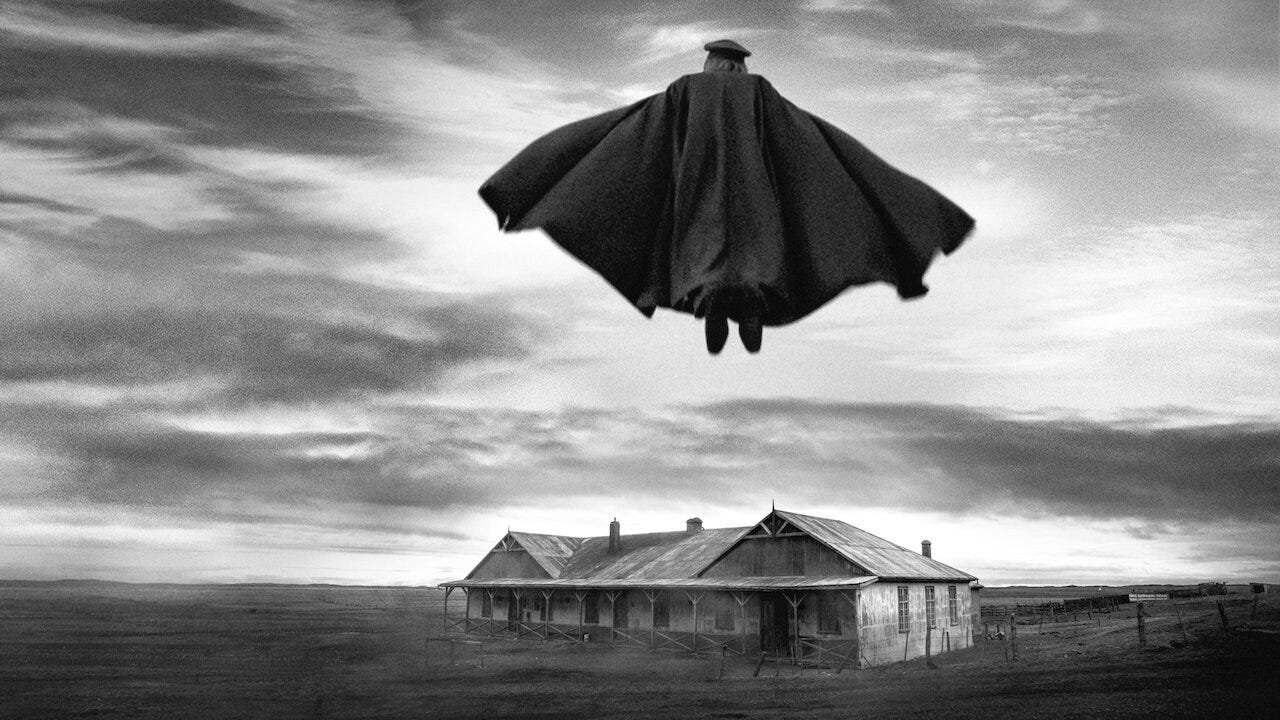
When news of these gruesome hunts starts to make headlines, Pinochet’s middle-aged children, a pack of greedy, stupid, and pamepered fools, recognize the bloody work of their father, and immediately panic. Desperate to make sure their lifestyles remain as they are, they journey out to their father’s farm to steal as much of their inheritance as they can, before their father’s carelessness can snatch it away from them. Once there, they spend their evenings simpering, pandering for their father’s approval over dinner, and their days ransacking the estate, digging stocks, deeds, and bearer bonds out of their hiding places in his old books, hunting for any proof of his hidden accounts.
Pinochet’s wife, Lucía Hiriart, meanwhile, just wants to have the same long life that Pinochet has had as a vampire. Pinochet has long refused her though, because he’s cruel and old, and hates himself and everyone else, especially his family. However, he turned Fyodor, the White Russian, into a vampire long ago, and since the butler and his wife are having an affair, Fyodor turns Lucia.
It’s at this point that a young nun makes the journey to the family’s exile.
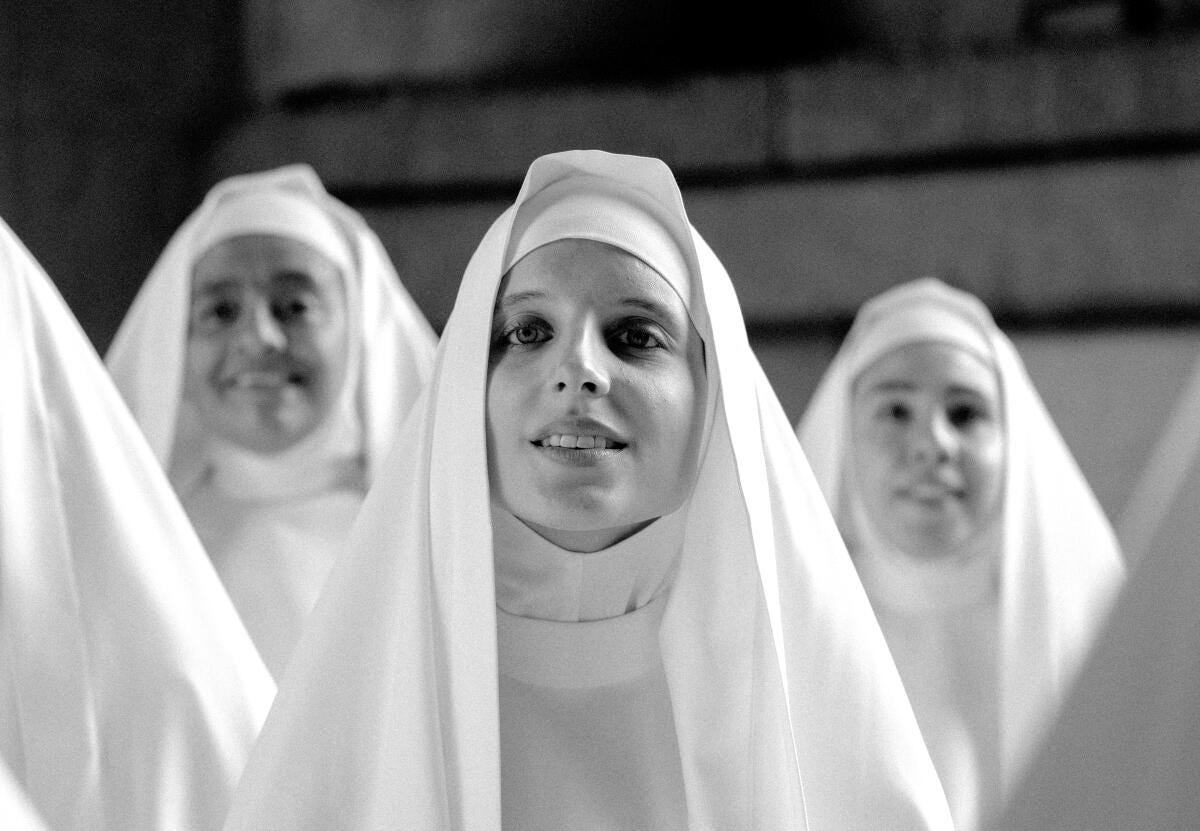
Sent by the greedy designs of The Chruch, who were alerted to Pinochet’s existence as a vampie by his own children, Sister Carmen poses as an accountant, but she brought with her a samll valise full of stakes, crosses, silver and holy water. Sister Carmen is an expert exorcist, a slayer of monsters, and a vampire killer, and she has been tasked with exorcising and killing the old vampire, all while under the guise of auditing the family's wealth, grilling the family to map its whereabouts, which the Church will then take possession of upon his death.
Sister Carmen eventually reveals her true identity as a nun to Pinochet, and attempts to exorcise him, but she is overwhelmed by his vampiric presence and ends up eagerly hopping into bed with him, and allowing him to turn her into a vampire.
This event is what finally catches the attention of Margaret Thatcher, our narrator and an even older and more evil vampire than Pinochet is. She flies to Chili, and there, she reveals that she is actually Pinochet’s mother, and that she had abandoned him at an orphanage after she was first turned into a vampire herself, while she had been visiting mid-18th Century France as a young woman.
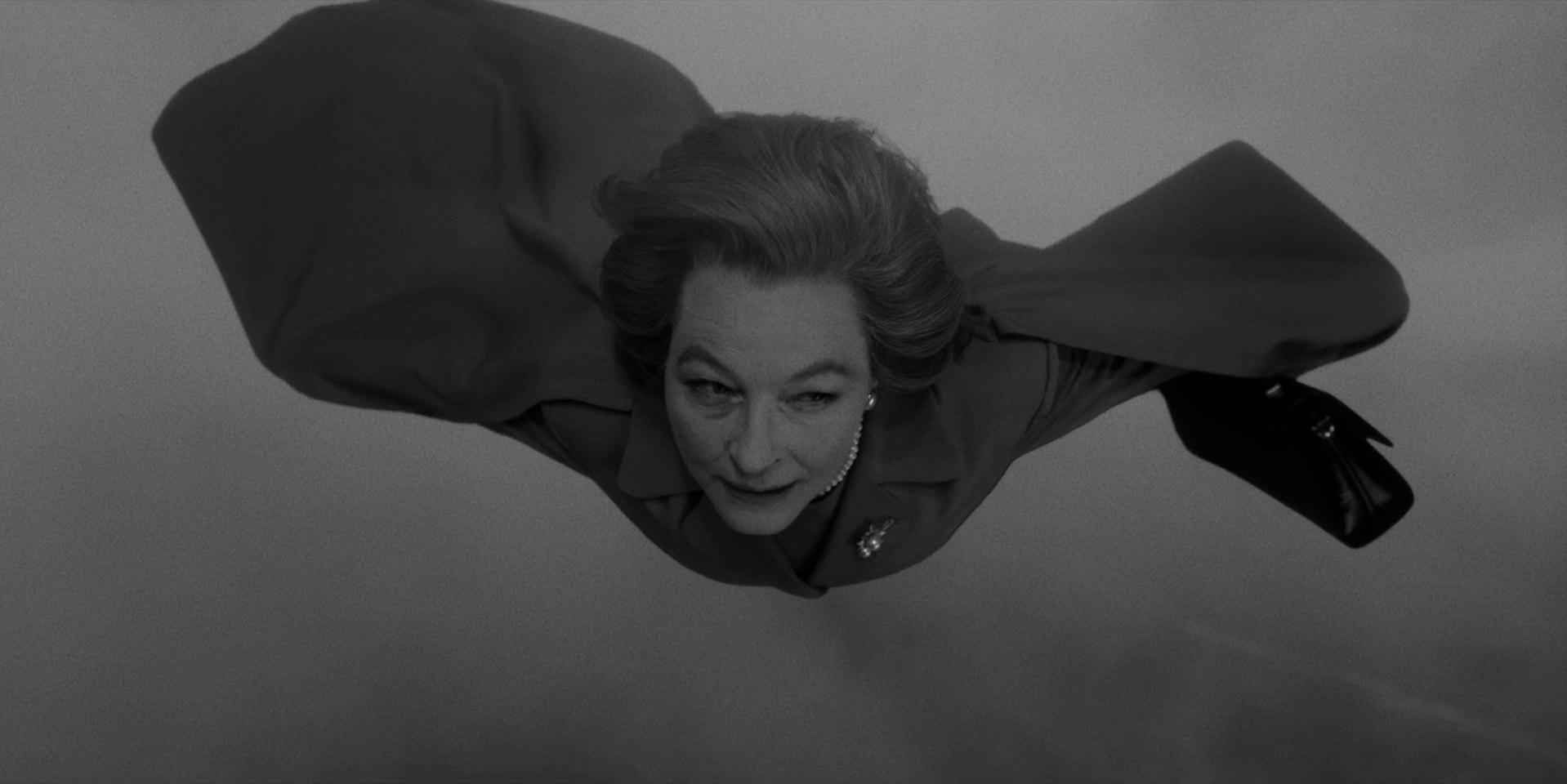
At one point, Margaret Thatcher says to Lucia, who has accused her of wanting to steal Pinochet from her: “Don’t speak to me in that tone, indigenous woman. I don’t want to steal him, he’s mine.” Which, even in a film of constant brutal satire, that is some viciously honed shit…
The kids, meanwhile, all debate the merits of just outright killing their parents themselves. They finally decide that this is the best course of action, because after all, if your parents are immortal creatures of the night, that means they won’t die, which means they’ll never get their inheritance.
Margaret Thatcher, jealous of Sister Carmen and Pinochet’s new love, orders him to kill the newly-made nun-vampire. Sister Carmen reveals that becoming a vampire was her holy mission all along, but as she attempts to flee, she is captured by Fyodor, and beheaded. Then Fyodor, Lucía, and the Pinochet children all attempt to kill Pinochet and Margaret Thatcher, but Pinochet easily brushes them aside, and kills Lucía and Fyodor. The children of Pinochet are left to grab as much as they can carry from the farm, and as they leave, a group of nuns arrive to take possession of the property.
Meanwhile, Pinochet and Margaret Thatcher fly off together, mother and son, both young again, rejuvenated on freshly pureed vampire hearts. They quietly reintegrate into Chilean society, where they plan to wait for the day when their chance will come to emerge once again, bringing the dark brutality of fascism with them.
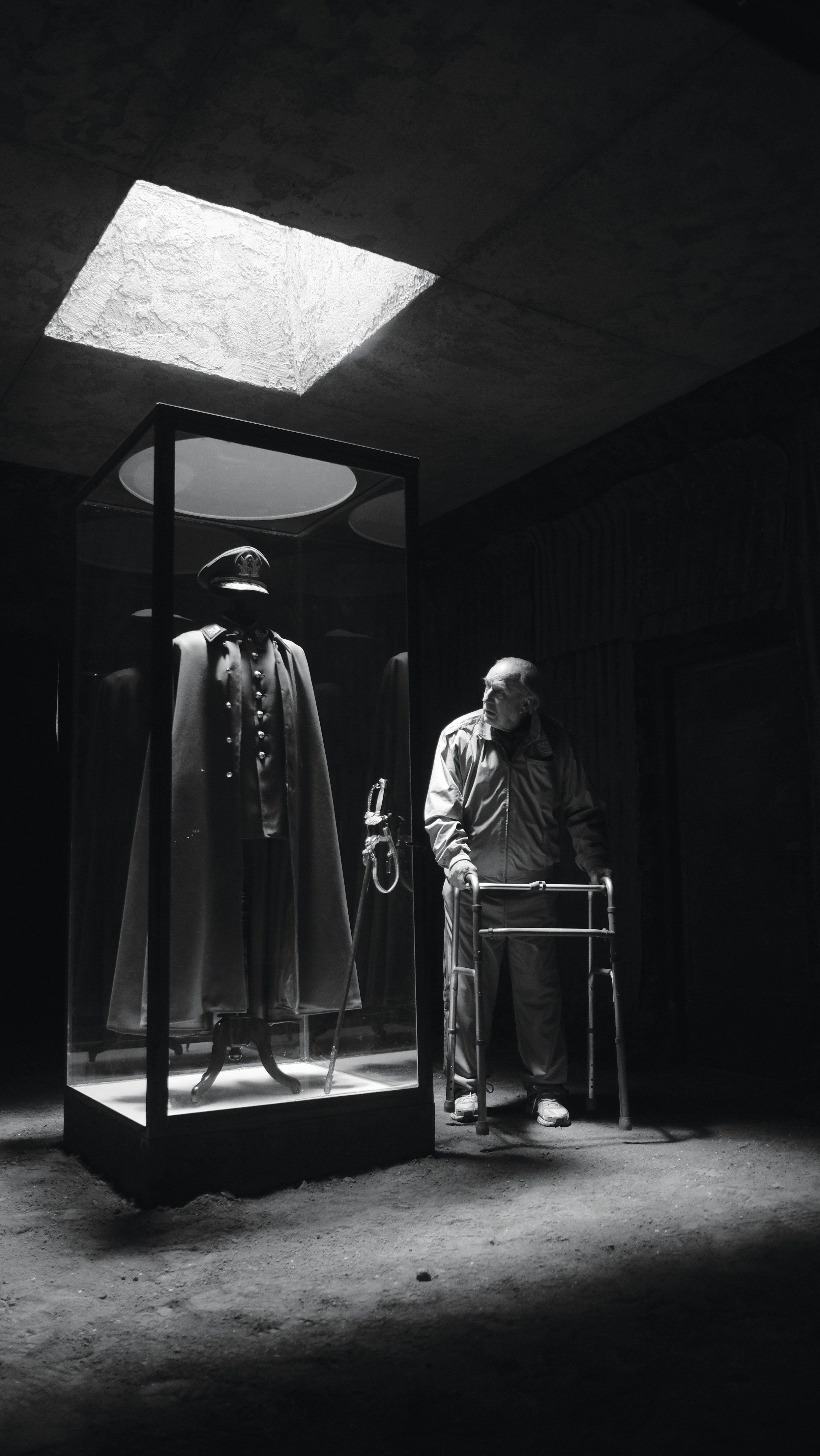
Funny and smart, and really good-looking, especially when the vampire is flying over the city, this is a film that, despite its darker and bloodier tone, has a decidedly “Wes Anderson” feel to it. Especially during Sister Carmen’s wide-eyed interactions as she interviews the family.
I enjoyed it immensely.
But… it’s obvious while watching that a lot of the movie’s satire depends on the audience being very familiar with Pinochet, his real life history, and the peope he kept in his orbit, so those of us who maybe aren’t as familiar with Pinochet, beyond the big broad satirical brush strokes, might miss a lot of the more subtle and nuanced bits.
This isn’t a bad thing.
El Conde is a Chilean film, after all, one that is about Chile, so there’s no reason to expect it to be concerned with generally ignorant Americans fully understanding what is happening here, but still… I’m just saying, there’s probably a ton of jokes in this film that will land better if you’re more than passingly familiar with the central character and his role in Chilean history.
Still, while watching this film, it’s easy to see why the MAGA turds festering within the toilet bowl that is our country see so much of their hero Trump in Pinochet, as the old dictator is obviously who Trump aspires to be. Trump would gleefully kill for the chance to wear a ridculous parody of an military uniform, all bedazzled and weighed down by medals, while a crowd cheers for him, to wrap himself in the gaudies wealth that the nation’s riches could buy him, and to have his enemies “disappeared” all for the crime of laughing at his tiny hands. He’d love it.
But mostly, it’s in the way that Pinochet is depicted in this movie. Here, he’s a decrepit and aging methuselah in ratty pajamas and threadbare robes, knocking about in a broken-down house of faded finery, a petty, small, and vindictive thing, riddled with insecurities, ruled by his base needs, and reeking of irrelevance as he lives in filth and isolation, with only sycophants and yes-men around him, scum who despise him almost as much as he despises them. He’s shown as a person who has no concern for anyone he’s hurt, and only cares about the labels he feels are so unfairly applied to him—thief, murderer, fool, monster—while stewing over the glories that he feels are so unjustly denied him, the accolades that he feels history owes him… what did he do, he asks plaintively? How could he possibly be deserving of such attacks, when he only did as he needed, when he only took that which deservedly belonged to him? Here, we clearly see that the hoary old leech Pinochet is also undeniably Trump.
Sharp and deliberate, skewering, in the end, El Conde is a film that offers no false hopes about this world we live in, or the systems and people that have longed plagued us, and continue to do so to this day. And despite its fun and jokes, the film’s ending is clearly meant as a warning that these evils never truly perish, that they are always the same people, over and over, the same people, who only changed their shape when their fortunes changes, and hid away, waiting for their moment to re-emerge.
A warning that came too late, as it were.
